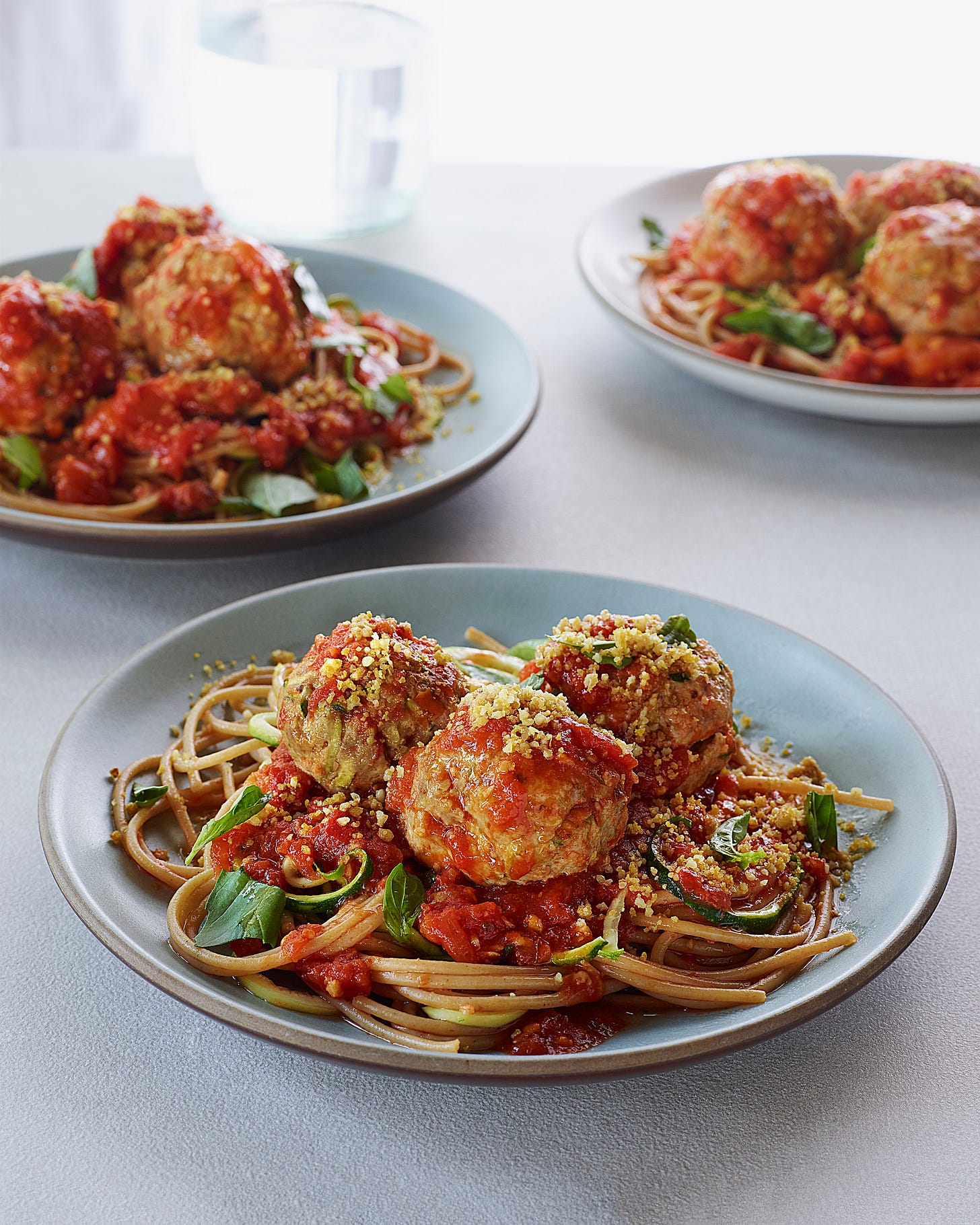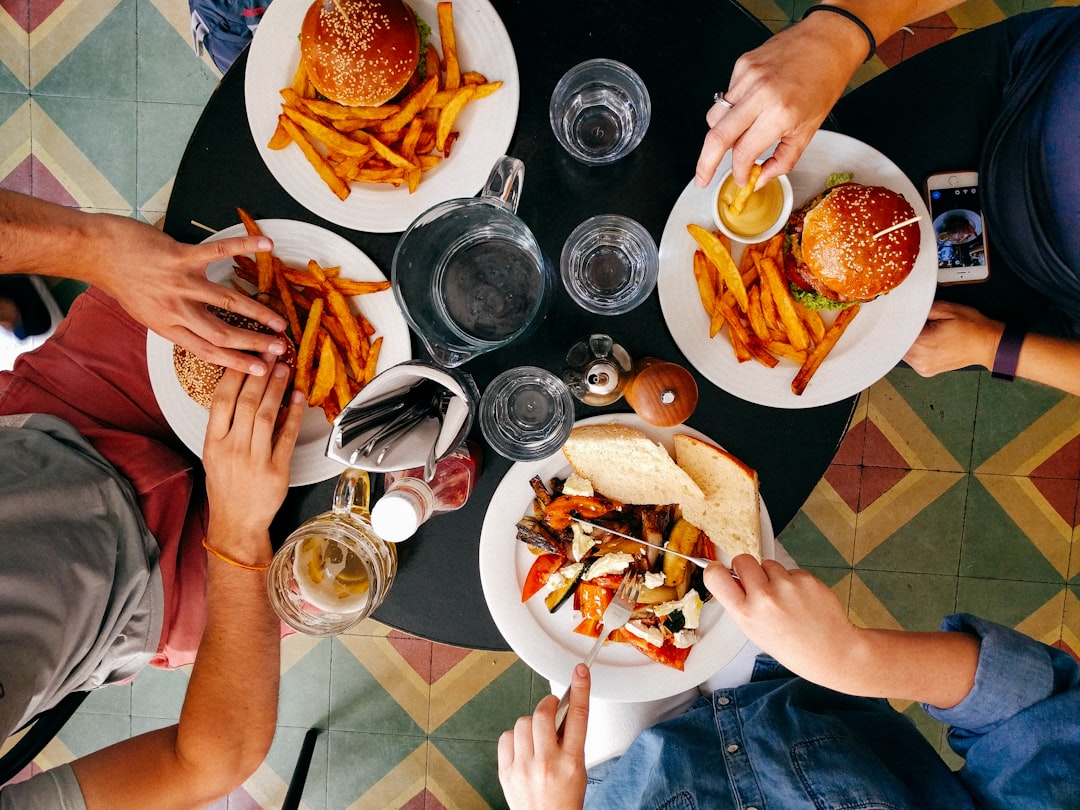How To Talk To Young Adults About Brain Health
7 simple strategies that nudge towards healthier habits
Hello, everyone. I write to you from up in the air for what I hope is the last time in a while. After many months of travel, I am headed home. Do you know what I’ve missed most? Jump-starting my day with Orzo and Livvie, who insist on taking me for a walk first thing. I am also looking forward to getting back to a regular exercise and sleep schedule, and cooking in my own kitchen. I wouldn’t have missed this last trip for anything, though, to celebrate my 23-year old son’s college graduation. Hanging out with Nick and his friends got me thinking about today’s topic—how to talk to young adults (those born between 1981 and 2004) about brain health.
This subject has been popping up consistently here and wherever I speak. As frequent readers of this newsletter (aka my Brain Health Ambassadors), you’ve learned so much! You know how crucial it is to take care of your brain, so it’s difficult to stand by and watch the “kids” engage in brain-harming habits like smoking, binge drinking, and erratic sleep, not to mention a steady diet of junk food and recreational drugs. As one of you wrote to me: My college-age daughter eats pizza and fast food burgers most days. How can I convince her to eat a more brain-healthy diet? Another subscriber was worried that her high school senior’s bouts of depression would put him at greater risk for dementia later in life. And I’ve had numerous questions about the impact of cannabinoids on long term brain health.
I don’t claim to have all the answers, but here I offer you seven simple strategies to nudge the young adults in your life towards better brain health.
The first three are solidly based on science. For the rest, I draw on my experience of sharing brain health information with medical students, young adults in my cooking classes, and raising two 20-something sons. I have found that kids today are more health-conscious than you may think. But because they consume so much information via social media, they get a lot of misinformation about brain health. Case in point: many young adults think coconut oil is a brain healthy food when, in fact, studies suggest the opposite.
Young adults are mostly ignored in brain health studies
First, it helps to know that there’s a huge knowledge gap about brain health in young adults. While the bulk of this research has focused on children, adolescents, middle aged and older adults, there is a paucity of brain health data on those between ages 20 and 40. Young adults aren’t even listed as an age group in the Lancet Commission’s latest report of the 12 modifiable risk factors for dementia (see graphic below.) An exception: a large brain imaging study by Dr. Daniel Amen included young adults (see #5 below).

What we do know is this: early detection and management of risk factors is the best way to prevent neurodegenerative changes that cause dementia later in life.
How early? The earliest known risk factor (that’s not genetic) is lack of childhood education. Others, like traumatic brain injury (TBI), are listed as mid-life factors but are clearly pertinent to young adults. Despite this huge knowledge gap, common sense should prevail. Let’s share brain health information with young adults now instead of waiting until randomized controlled trials duplicate what we know about dementia prevention in older age groups. Here are a few simple strategies to share with the young adults in your life.
7 Actionable Brain Health Strategies For All Ages
A Mediterranean-style diet improves mental health. As I mentioned in this post about ultra processed foods (UPFs), researchers are starting to prove that poor dietary patterns increase mental health challenges like anxiety and depression. But here’s the good news: young adults suffering from these disorders got better when a Mediterranean-style diet was part of the treatment plan—25% better! That’s like gaining a depression-free week of every month.
Share This: The science of how a brain healthy diet alleviates anxiety or depression: this study, the SMILES trial, and this one from Italy. Suggest Mediterranean-style swaps for UPFs, like hummus and crudité for chips and dip, oatmeal and berries for sweetened cereal, smoothies for energy drinks. A good book and social media follow: Eat to Beat Anxiety and Depression by @drdrewramsey @brainfoodMD.
Lack of sleep triggers amyloid protein deposits in the brain. You don’t have to be Matthew Walker (Berkeley sleep researcher and author of Why We Sleep) to know that lack of sleep impairs memory and thinking. Or, that drinking alcohol destroys healthy sleep architecture. Now there is data to show that the brain racks up amyloid protein (a finding associated with Alzheimer’s) with each hour of sleep lost.
Share This: The book Why We Sleep, in which Walker shares the same advice he gives his Berkeley college students about the impact of sleep deprivation, drinking alcohol, and sleep habits on memory.
Identify high cholesterol early. While brain health data is lacking, there is solid data about the impact of harmful cholesterol (LDL) in this age group. The younger you have high LDL, the more likely you are to get heart disease at mid-life, which in turn is a major risk factor for dementia.
To Do: Check a lipid profile starting around age 20, especially if there is a family history of early onset of heart disease. Identifying elevated LDL early, and taking steps to get it down (like exercise, reducing saturated fat in the diet, and medication) is a powerful tool for protecting brain health.
Shift the focus from dementia prevention to improving cognitive function now. Telling your 20-something son or daughter to lay off the junk food so they don’t get Alzheimer’s is bound to go in one ear and out the other. Instead, focus on another proven benefit of brain-healthy eating: a boost in thinking and memory skills. Specifically, show them the science that a diet rich in flavonoids can ramp up working memory, spatial memory, and executive function time—which helps them be smart and get stuff done. As I told medical students during my last talk: make brain-healthy eating your superpower, and reap the benefits by building confidence that comes from doing well and achieving goals.
Share This: The science of how a flavonoid-rich diet improves memory and thinking skills which I go into here.
Challenge the assumption that cannabis and alcohol are harmless. One of the largest brain imaging studies ever done included young adults to see which behaviors harm brain health. These findings stand out: young adults with alcohol and cannabis use disorders (implying consistent daily use) had accelerated brain aging. In other words, these young adults’ brains looked significantly older than their chronological age.
Share This: Brain imaging data from over 31,000 brains that shows how daily cannabis use accelerates brain aging. Follow Dr. Amen, the lead investigator, on Instagram and TikTok for straight talk about brain health in young adults.
Take a stand on junk food. Challenge your young adult to limit UPFs to less than 3 meals a week. So while this means they can still enjoy pizza and burgers with their friends, the bulk of what they eat should come from whole foods.
To Do: Map out the healthier options available. If your college student likes to eat at Chipotle, for example, suggest choosing bowls over burritos. Ask for brown rice instead of white, and go for a lean protein like beans and chicken. Choose guacamole over sour cream, queso, and cheese.
Don’t be a junk food enabler. You may mean well by stocking up on your kid’s favorite foods when they come home to visit, but if those foods include UPFs (like chips and soda and frozen pizza), you’ll be thwarting their attempts to eat healthfully.
To Do: Don’t deviate from your brain-healthy eating when a young adult comes home, but be sure to include foods you know they’ll love. Some suggestions from my book: Spinach and Artichoke Dip (page 88), Whole-Wheat Spaghetti with Turkey-Zucchini Meatballs (page 296), and Chunky Whole-Grain Chocolate Chip Cookies Page 265).

Be a Pantry Hero. As my son Nick reminded me last week: cooking can be expensive. He tries to cook at home to save money, but just going to the grocery store to buy ingredients for a recipe can cost him his whole daily food budget.
To Do: If you can afford to, help out by stocking your young adult’s pantry. Start with brain-friendly snacks (nuts, pumpkin seeds, and trail mix), pantry staples (pouches of black, pinto, and garbanzo beans, good marinara sauce, olives, jarred red and green salsa, good quality instant oats, protein powder, quinoa, and whole grain rice), and ingredients that are also flavor bombs (good extra-virgin olive oil, tahini, harissa, anchovy paste, good mustard, and chipotle chiles in adobo, to name a few). Sending a care package from an online grocery store (I like Thrive Market) incentivizes healthy cooking and helps lighten the food budget.
Share This: Prep: The Essential College Cookbook by Katie S. Morford, a budget-friendly cookbook.
Consider supplements. If your young adult gets the bulk of their calories from UPFs, they probably suffer from micronutrient deficiencies that could thwart mental and cognitive health. The omega-3 fatty acids DHA and EPA are prime candidates for supplementation because good-quality fish may not be in the budget, and fried fish and seafood (like you get at fast food restaurants) is devoid of DHA and EPA. Magnesium, vitamin D, creatine, and B-complex vitamins are all nutrients to keep an eye on early in life.
To Do: Recommend taking DHA and EPA as a fish or algae oil supplement. Consider a multivitamin, too, to cover other nutrient gaps.
Changing the narrative around dementia prevention to include young adults
Young adults make up 30% of the population yet we know very little about science-based practices for preventing their cognitive decline. Hopefully, this is beginning to change. There is good work being done in this space at HFCUniverse, a brain health education program for high school and college students by actor Seth Rogen. And Trinity College Professor Brian Lawlor, who in this essay (sorry about the paywall) describes good brain health as a state of optimal cognitive, sensory, social-emotional, and behavioral functioning, offers this call to action:
“Understanding brain health in young adults is critical as they have the opportunity to make early and long term changes to minimize risk of developing dementia. If we are to truly change the narrative around brain health and dementia prevention, the story must resonate with the next generation. That’s why we need to reframe, co- produce and amplify the life course brain health message with young adults.”
I’d love to hear what your experience has been sharing brain health information with the young adults in your life.
What are the challenges? What seems to resonate?
Finally, if you missed the announcement of my next Brain Health Retreat in Italy (yes, we are going to Puglia!), you can find more information and the link to sign up here and below. (Please note that this button won’t work if using the Substack app.)
I’ll be back on Friday with a short list of some of my favorite brain-healthy things. Have the best week, friends.
Love,
Annie





At this very moment, I’m reading this article bedside as my mom loses her devastating battle with Alzheimer’s. My daughters, ages 22 & 19 are here with us. What I wouldn’t give for them to join me in adopting these practices so we all keep our brains healthy for the long haul! Thank you for equipping me with more information to continue having these conversations.
I was at the same graduation in Madison last weekend and had some of the same thoughts. Thank you for these helpful tips and resources!